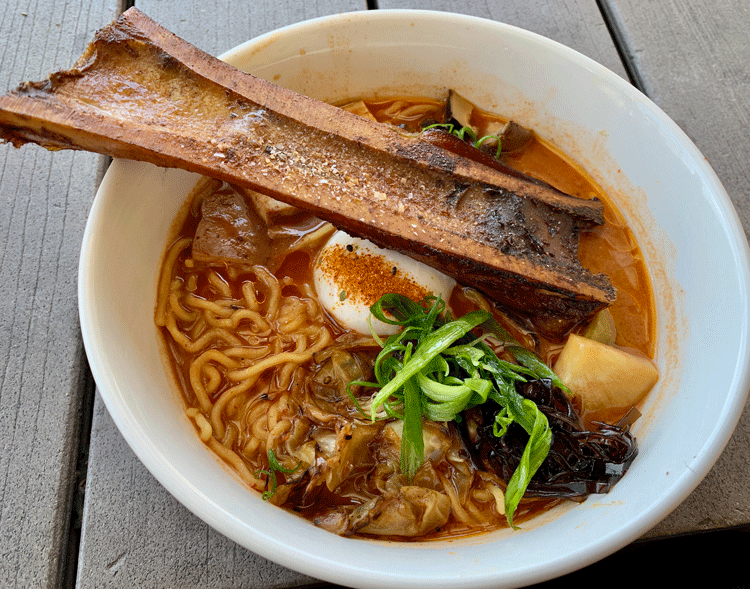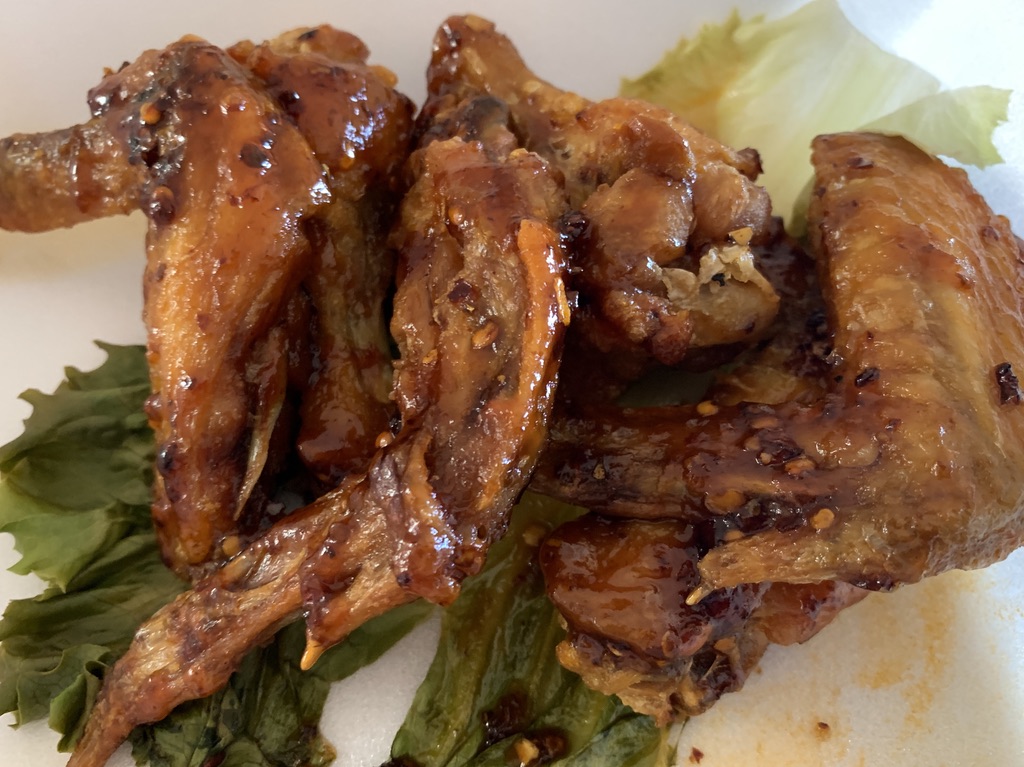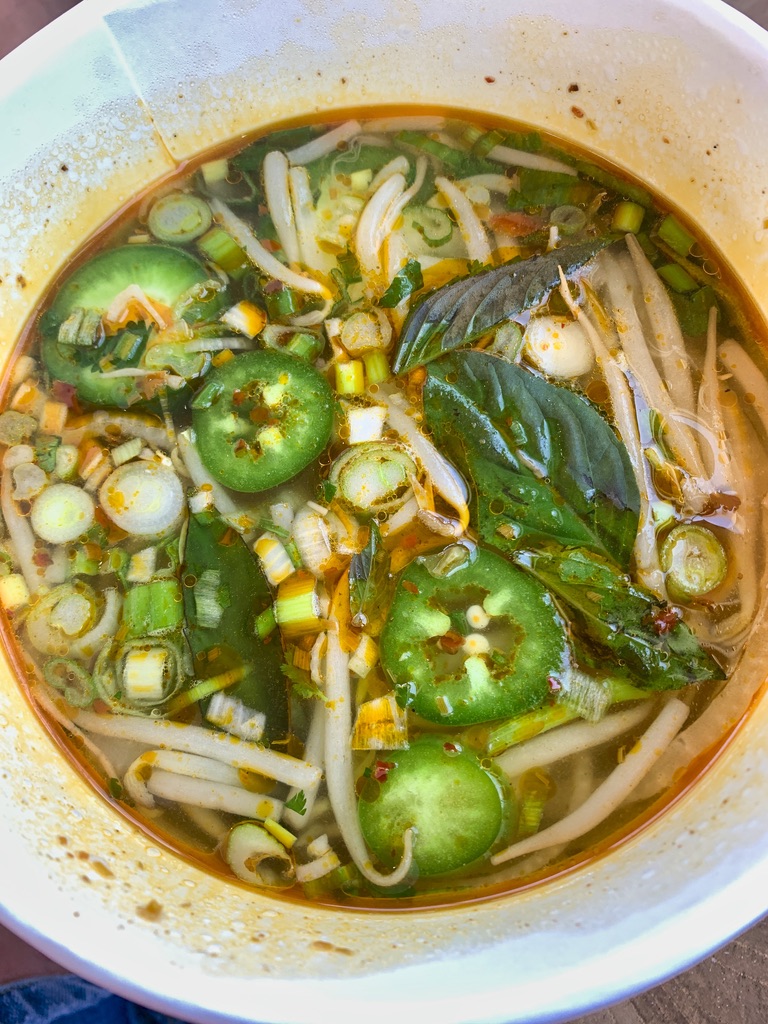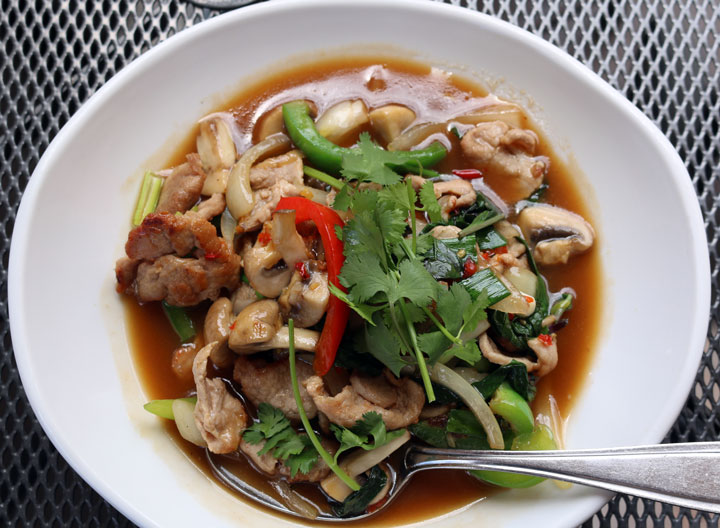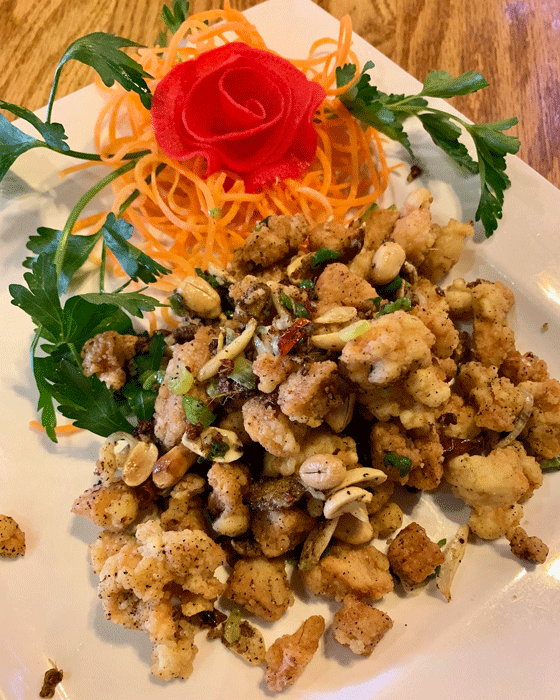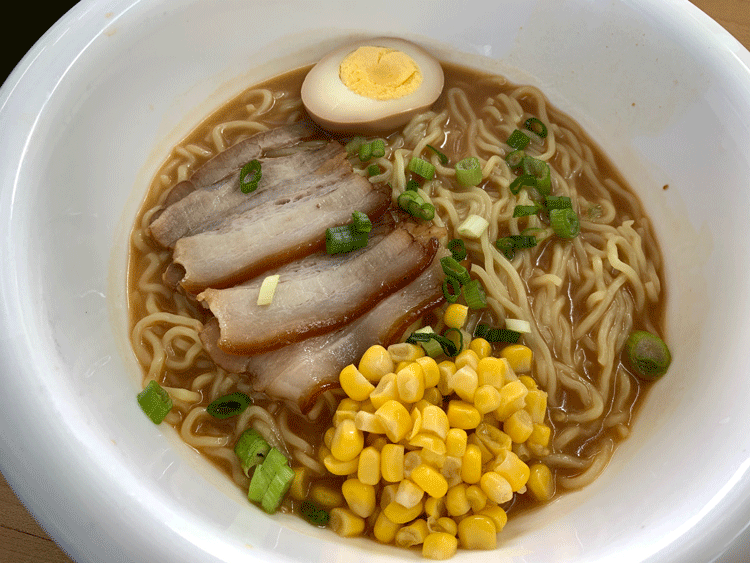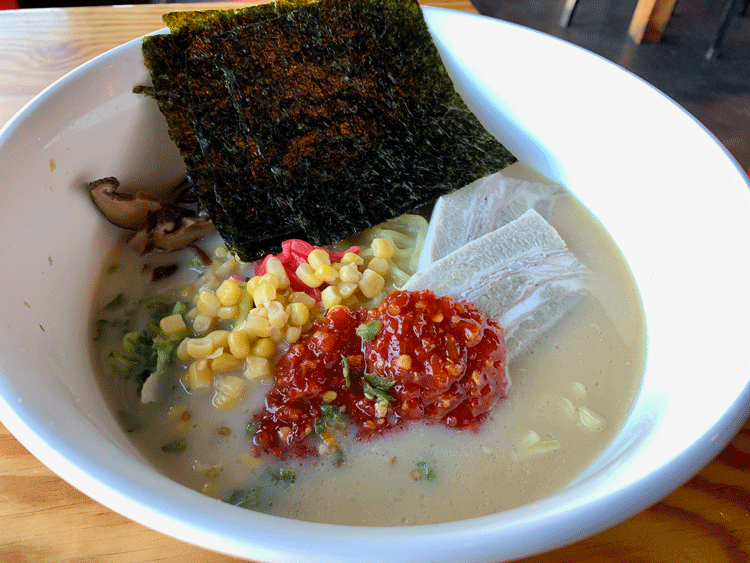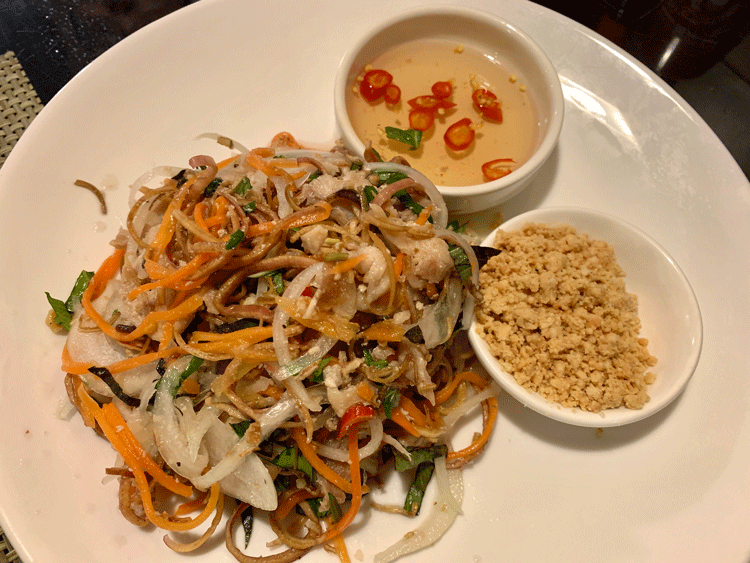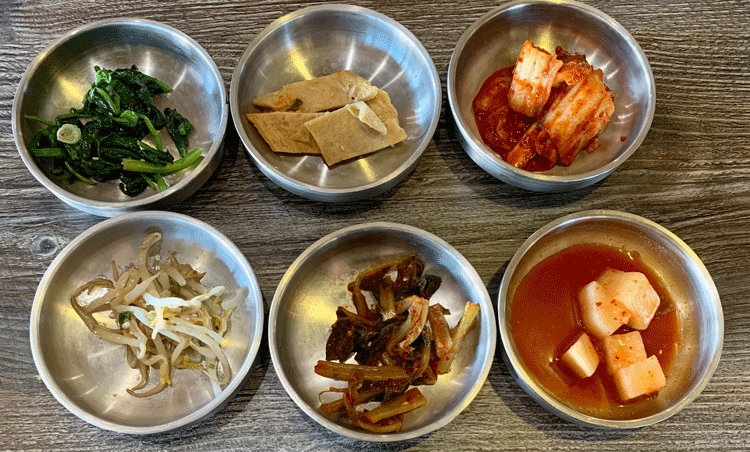Oni Noodles – Albuquerque, New Mexico
In retrospect, the monsters and bogeymen who frightened impressionable children of my generation were pretty lame. Perhaps the most lame of them all was Frankenstein, a lumbering behemoth who walked around with his arms outstretched like a sleepwalking Shaquille O’Neal. Frankenstein snarled and growled a lot, probably because Gene Hackman poured hot soup on his lap. Then there was that pasty-faced vampire Dracula who could be repelled with garlic (which explains his aversion for Italian food). Dracula couldn’t even enjoy New Mexico’s 310 days of sunshine without sizzling and hissing like a strip of bacon. In comparison Japan’s monsters are pretty badass. Godzilla, a foul-tempered prehistoric sea monster prone to tantrums destroyed Tokyo several times and was pretty much impervious…
